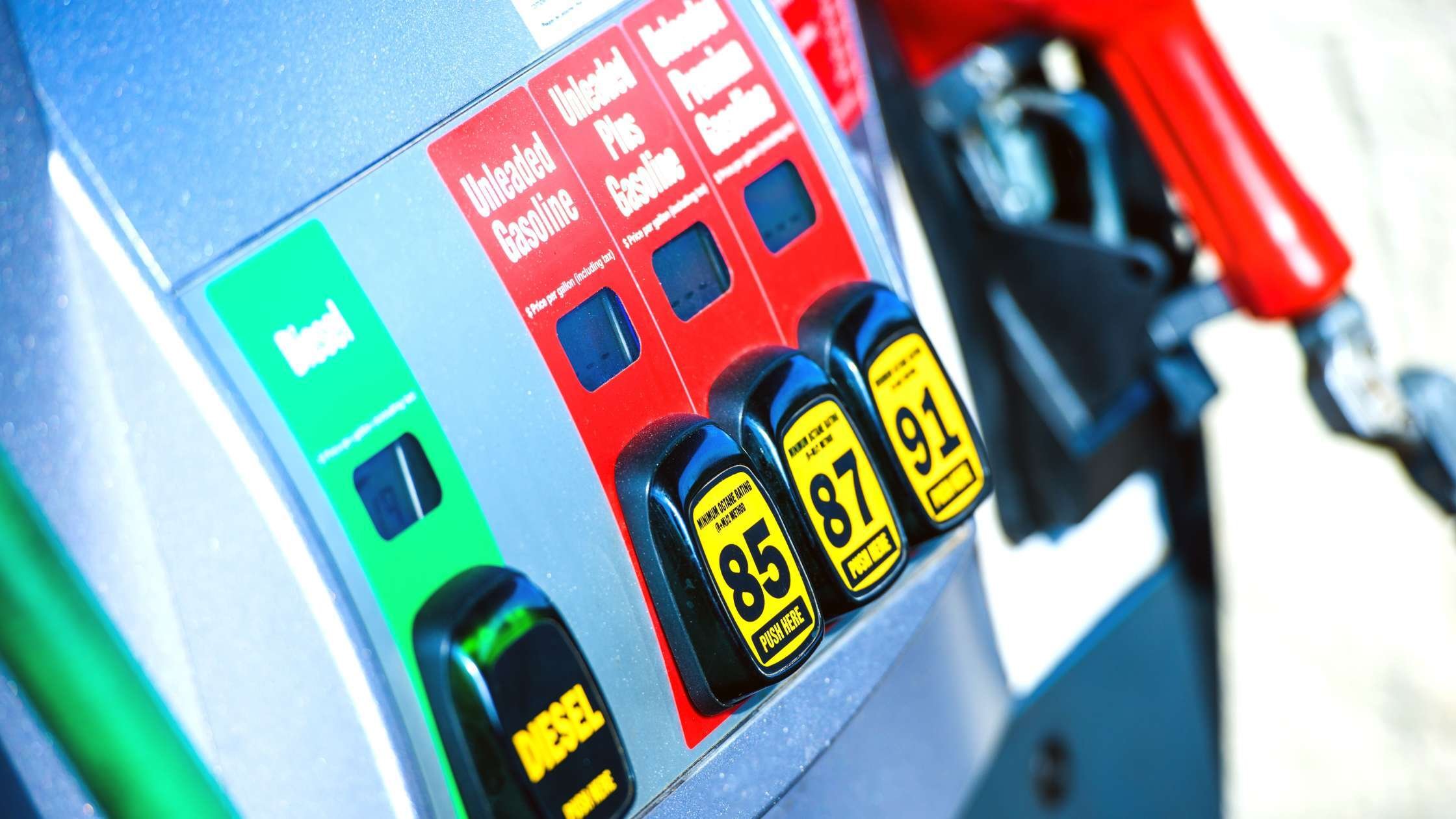
Effectively managing fuel expenses is a significant challenge for businesses with vehicle fleets, making fuel cards an essential tool for many. But are fuel cards really worth it? Deciding if a fuel card is right for your business depends on factors like fleet size, spending habits, and your priorities. Fuel cards can offer valuable savings, enhance expense controls, and streamline reporting, but it’s important to understand potential fees and limitations associated with specific fuel cards.
This guide will outline key benefits, drawbacks, and considerations to help you determine whether a fuel card is the right choice for your business.
Table of Contents
- Fuel card advantages and disadvantages overview
- Fuel card advantages
- Fuel card disadvantages
- Are fuel cards worth it for your business?
- Are fuel cards worth it for small business?
Fuel Card Advantages and Disadvantages Overview
Here are the advantages and disadvantages of fuel cards for quick comparison.
| Fuel Card Advantages | Fuel Card Disadvantages |
| ✅More control over fuel expenses | ❌Fuel cards with high fees can outweigh savings |
| ✅Discounts on fuel | ❌Short billing cycles |
| ✅Separates fuel expenses from other business expenses | ❌Limited personal points or rewards |
| ✅Eliminates driver fuel reimbursement process | ❌Not all fuel stations accept fuel cards |
| ✅Detailed tracking and reporting | |
| ✅Simplifies expense and compliance reporting |
Fuel Card Advantages
Fuel cards help businesses take control of fuel spending, streamline reporting, and unlock discounts at the pump. Here are some key fuel card advantages to consider:
More Control Over Fuel Expenses
Other payment methods such as cash, credit cards, or debit cards provide little to no financial control over your fuel purchases. Fuel cards provide spend controls to help businesses eliminate driver fuel theft and fraud.
Here are some examples of fuel card spend limits:
- Fuel only purchases
- Number of transactions per day
- Dollars per transaction, day, week, or month
- Authorized fueling times and days (i.e. M-F, 8AM-5PM)
- Authorized fueling locations based on state, zip code, or station type
Discounts on Fuel
Fuel cards often include discounts that you won’t get with credit or debit cards. Some, like the CFN card, even offer cost-plus pricing which can provide significant savings to fleets at cardlock fuel stations. With the right fuel card discounts even the smallest fleets can save hundreds or thousands of dollars over the course of a year.
Explore the 2026 Guide to the Best Fleet Fuel Cards with Discounts to compare top fuel card discounts and find the cards that will save your business the most money at the pump.
Separates Fuel Expenses from Other Business Expenses
The issue with using a credit or corporate card for fuel is that accounting has to sift through every business purchase just to pull out fuel expenses which is a time consuming process. With fuel cards, all of your company’s fuel purchases are on one account, and you’ll receive a single, consolidated fuel invoice. Fuel card transaction data can also be easily exported into CSV to upload into your accounting system for fuel expense reporting.
Eliminates Driver Fuel Reimbursement Process
Fuel cards eliminate the need to reimburse drivers for fuel purchases, saving your accounting team hours each month spent chasing receipts, entering data, and cutting reimbursement checks. Also, for fleets with larger vehicles, a single fuel-up can run $500-$1,000. Most drivers don’t want to put that kind of expense on their personal credit card and wait to be paid back.
Detailed Tracking and Reporting
Fuel cards collect more data at the pump compared to regular payment cards such as driver, vehicle, and odometer which is used to generate detailed fleet fuel reporting. Fuel cards can also track job number and business department for each transaction that helps accounts allocate fuel costs by job and business department. Organized fuel reports can be imported into your accounting system and can be used to file compliance reports such as the IFTA quarterly report.
Overall fuel card reporting gets rid of collecting fuel receipts or sifting through credit card statements to build accounting and compliance fuel reports, so you don't have to waste your time on manual reporting tasks.
Here are some examples of fleet fuel card fuel reports:
- Fuel usage by driver and vehicle
- IFTA fuel report
- Summary of transactions by division, department, job number, GL code, or product
- Fuel tax refunds
Fuel Card Disadvantages
Some fuel cards do come with a few drawbacks worth considering. Here are the disadvantages of fuel cards:
Fuel Cards with High Fees Can Outweigh Savings
Some fuel card providers charge fees that can wipe out your savings such as monthly fees, transaction fees, out-of-network fees, late fees, and account setup fees. Often, these charges are buried in the fine print of a fuel card's application. But there are fuel card companies like P-Fleet that offer transparent pricing with no hidden charges, so you can be confident you’re actually saving with your fuel card.
Short Billing Cycles
Fuel card billing cycles are usually shorter than what you’d see with other payment cards or business vendors. Weekly, 10-day, or semi-monthly statements are common. That’s because fuel card companies pay stations on short cycles for the fuel their customers use, and offering longer terms would drive up cash flow costs and cut into the already thin margins they operate on. The upside is that shorter billing cycles help fleets stay within their credit limits and make approvals easier, since smaller credit lines are required.
Limited Points or Rewards
Fuel cards are designed to deliver discounts for fleets, not rewards or points like credit cards. For most fleets, this works as they care more about cutting fuel costs than collecting perks. But for very small businesses with only a few vehicles, some owners prefer using a credit card to rack up personal points on fuel purchases.
Not All Fuel Stations Accept Fuel Cards
Almost every station takes credit and debit cards, but fuel card acceptance varies by provider. Some over-the-road fuel cards work at only 8,000 stations, while universal options like the Voyager fuel card are accepted at 97% of stations nationwide. The key is choosing a fuel card that covers the locations your drivers actually use.
Are Fuel Cards Worth It for Your Business?
Before signing up for a fleet fuel card, it’s important to make sure it’s the right fit for your business, otherwise you could end up with more headaches than savings. Use this checklist to quickly evaluate if fuel cards are worth it for your operation.
Yes, Fuel Cards Are Worth It For Your Business If:
- You have more than a couple drivers, you'll need spend controls to prevent driver fuel expense misuse
- You want discounts and access to cost-plus fuel card pricing
- You want to pay for your driver's fuel rather than having them submit reimbursements
- You want to simplify fuel expense and compliance reporting
No, Fuel Cards Are Not Worth It For Your Business If:
- You don’t have enough drivers for fuel expense control to be a real concern
- Your personal credit card points outweigh fuel card savings
- You want long billing terms (i.e. monthly with 30+ day terms)
Are Fuel Cards Worth It for Small Business?
Yes, fuel cards are worth it for most small businesses with two or more drivers. The real value comes from controlling and tracking fuel expenses. If you only have one driver, the benefit is limited since you already know exactly who’s making the purchases.
See How P-Fleet's Fuel Cards Can Help Your Business
P-Fleet’s fuel cards make it simple to take control of your fuel expenses. With nationwide acceptance, cost-plus pricing, and spend controls, you’ll know exactly where every dollar is going. Our online portal gives you real-time visibility into transactions, easy access to invoices, and free IFTA fuel reports, so your accounting team saves hours every month. Whether you’re managing a few vehicles or a large fleet, P-Fleet’s Voyager and CFN cards help you cut costs, prevent unauthorized purchases, and simplify fuel management.





